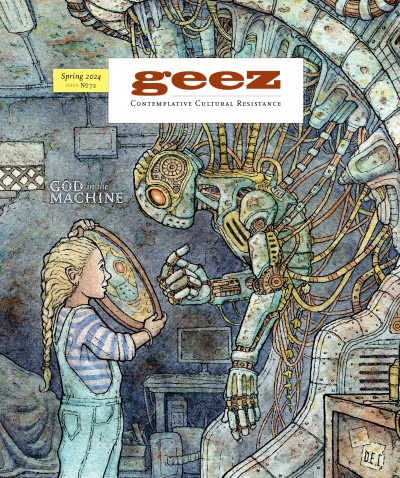“Hidden Figures” Guards Whites’ Feelings
If you’re looking to feel good about how reasonable most white people were during Jim Crow America, Hidden Figures is your movie.
It doesn’t rewrite the past to recontextualize the present, and it doesn’t set out to undo the damage perpetrated by white narratives about people of co¬lour. Instead, it co-opts a story about the black experience and adds white saviours.
But, you say, spluttering, the movie shows how some of the most brilliant minds at NASA were black women! Note the radness of Katherine Johnson, Dorothy Vaughan, and Mary Jackson (played by Taraji P. Henson, Octavia Spencer, and Janelle Monáe, respectively). Just look at how on point their outfits are as they get shit done and write complicated space travel math stuff, all while rolling their eyes at the dumb white men (and catty white women) around them.
To which we respond: yes, duh. This is a phenomenal story that should have been told a long time ago. It should not, however, have been told like this.
In one of Hidden Figures’ opening scenes, Johnson, Vaughan, and Jackson stand beside their broken-down car. It is 1961 in middle-of-nowhere Virginia, and a police car approaches. The women explain to the white cop that they work at NASA and have stopped only long enough for Vaughan to fix the car’s starter. The officer responds by offering them a police escort all the way to Langley, and the scene ends with Jackson noting the irony of a car full of black women chasing a white cop down the road.
While this scene showcases director Theodore Melfi’s attempt to highlight women of colour who can hold their own in Jim Crow America, it also establishes the thread of white leadership that runs throughout the film: these women follow the white cop. He sets the pace and gets there first. This is one of many scenes where black stories are told in a way that assuages white guilt.
To its credit, the film focuses primarily on the women and their career paths at NASA. They are shown as intelligent, witty women whose stories don’t hinge on their ability to swiftly marry and churn out babies (although they do both). Even so, the film couches any achievements they make by highlighting “altruistic acts” of their white supervisors. The success of black characters in the film is contingent on validation from white authority figures.
After Johnson explains to her boss, Al Harrison (Kevin Costner), that she must take long breaks to run the half-mile and back to the only building with a restroom she is allowed to use, he marches to that building, takes up a crowbar, and knocks the “COLORED” sign down. Importantly, this scene is not part of the original story.
In reality, Johnson noted the absence of segregated washrooms in the building, and quietly used the white lady bathroom. Harrison’s removal of the sign (and, later, the “COLORED” label on Johnson’s coffee pot) is a noble gesture, but this added fictional detail overshadows Johnson’s real life experience, giving the victory to a white man, rather than to the black woman who subverted the system. Rather than systemically restructuring, Harrison simply redecorates.
This is a movie that wants to have it both ways. Look no further than the strange closing shot of Johnson’s main antagonist, Paul Stafford (Jim Parsons), serving her a cup of coffee, or Vaughan’s supervisor, Vivian Mitchell (Kirsten Dunst), promoting her to the job she’s already been doing. Hidden Figures wants to show empowered women of colour, but not at the expense of white people’s feelings. What results is a self-congratulatory movie that follows the same old tropes, elevating whiteness as a standard for blackness to aspire to.
Mandy Elliott and Rachel Barber are editors and writers. They hate the patriarchy and love chips.



Sorry, comments are closed.